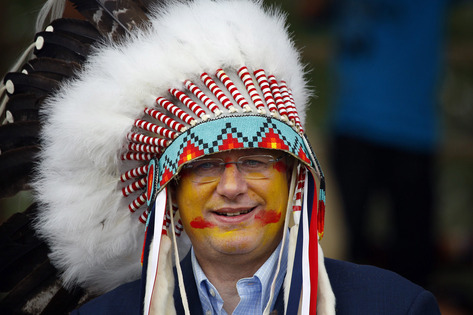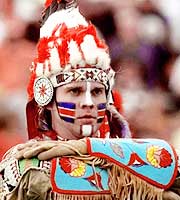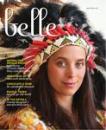By Carol Berry
“Generally speaking, white people who are interested in Indians are not very bright,” he said, because intelligent white people instinctively understand that everything they are likely to learn about Indians “is probably going to be crap, so they should be avoided.”
When Smith explains that “the Americas are built on the invasion and destruction of a populated land with hundreds of distinct, complex societies, and a slave trade involving millions of Africans,” he offers that “as an observation that is the minimum requirement for making sense of the history of our countries.”
Indian people are defined by the “distinctive type of racism that confronts Indians today: romanticism,” or a “highly developed, deeply ideological system of racism toward Indians that encompasses language, culture, and history,” ensuring their status as “strange and primitive.”
One antidote is acknowledgment of the totality of the lives of such notables as Geronimo, Quanah Parker, Black Elk and Sitting Bull, whose foibles and accomplishments included gambling, entertainment, and entrepreneurial self-promotion. Ironically, however, “Many Indian folks and our so-called friends in the Wannabe Tribe make a pretty good living dispensing jukebox spiritualism and environmental teachings” attributed to them and to other historic figures.
To dispel the master narrative of colonization, an opportunity exists for those willing to leave behind the “cheap, played-out clichés… It is nothing less than a reclamation of our common history of surviving the unparalleled disaster of European contact and the creation of something new and dynamic from the ashes.”
From this flows all the subsidiary uses of the Indian as mascot: for sports teams, hipsters and holiday parties, etc. They're all trying to capture a sense of "owning" the Indian. And thus of being more authentically American than others.
For more on the subject, see Americans = Wandering Strangers and Indian Wannabes = Celebrity Wannabes.
Below: People trying to be America's sweetheart: the stereotypical Indian.





6 comments:
Generally speaking, people who make generalizations aren't very bright.
Everything you know about Indians is wrong is right! Great great book and super funny author on a serious topic!
Rob, please remove the first picture... It's the Canadian Prime Minister Harper at a First Nations meeting.
Comparing political engagement with a racist hipster and an equally racist mascot a-hole is not cool.
But why was he wearing the head-dress?
Looks a bit like Dukakis and the tank photo.
@ dmarks: He was wearing the war bonnet cause he was being honored by a tribe... with said war bonnet.
I know what the first image is. Since it fits the theme of this posting, I'm keeping it.
Post a Comment